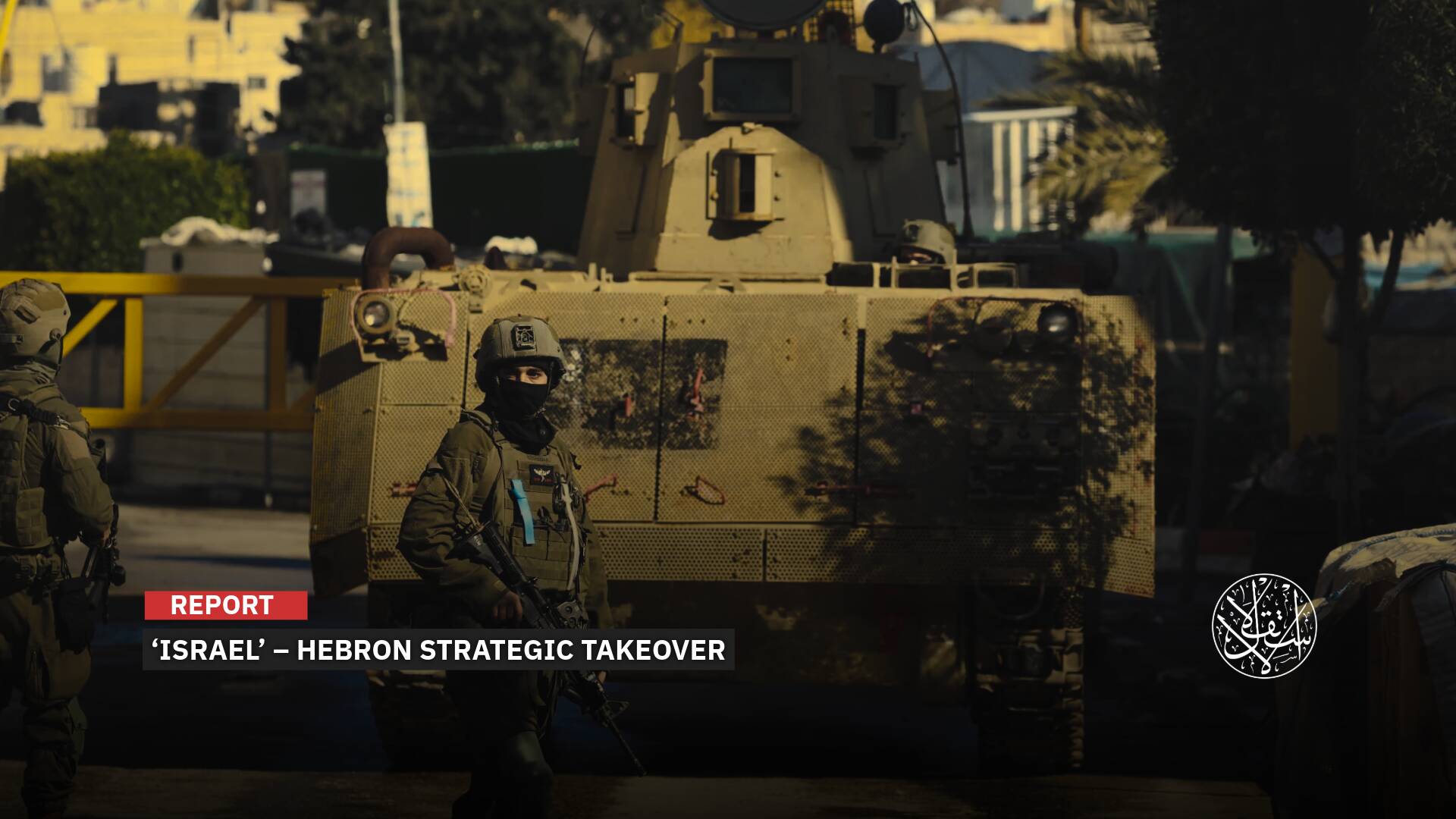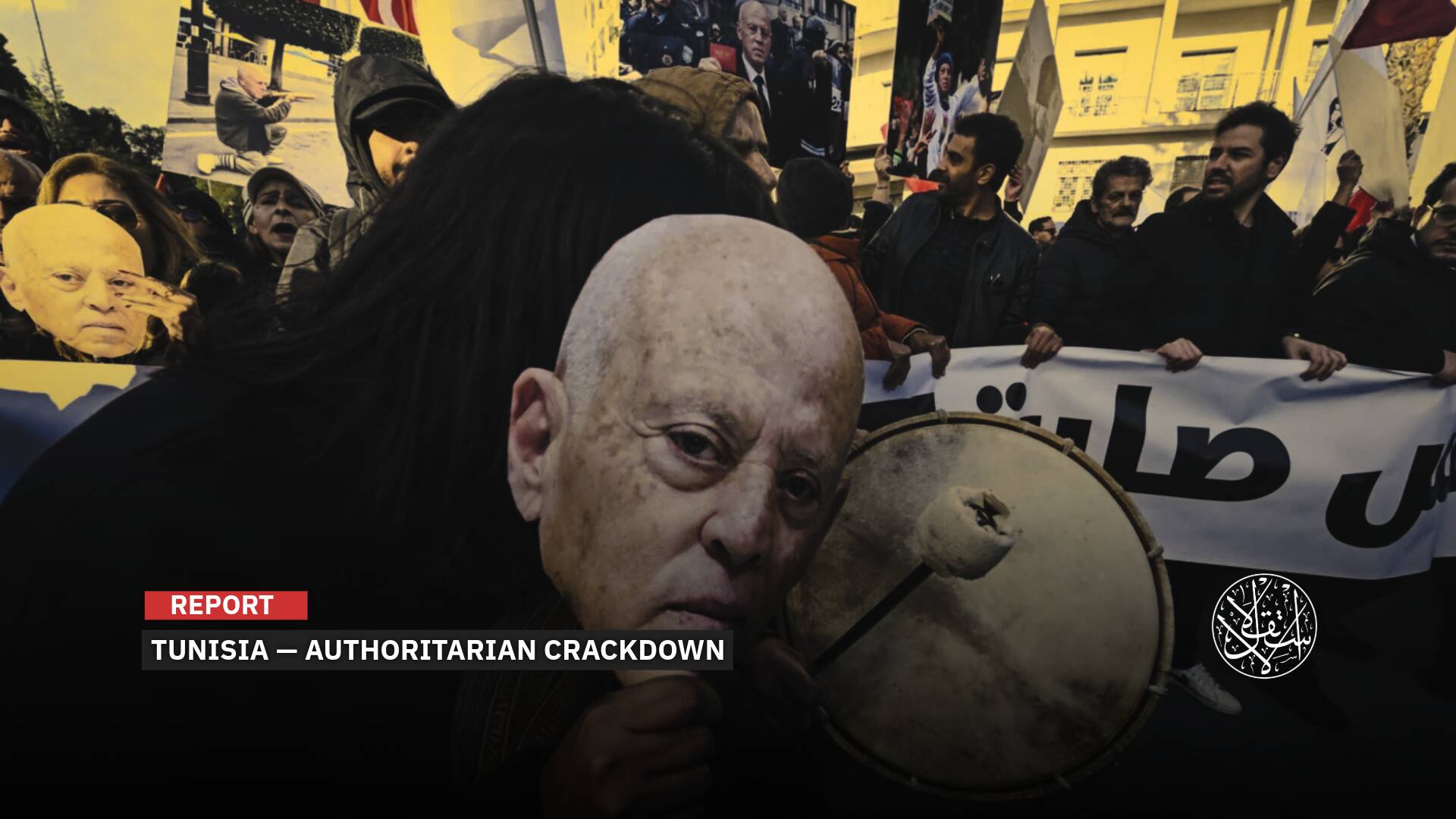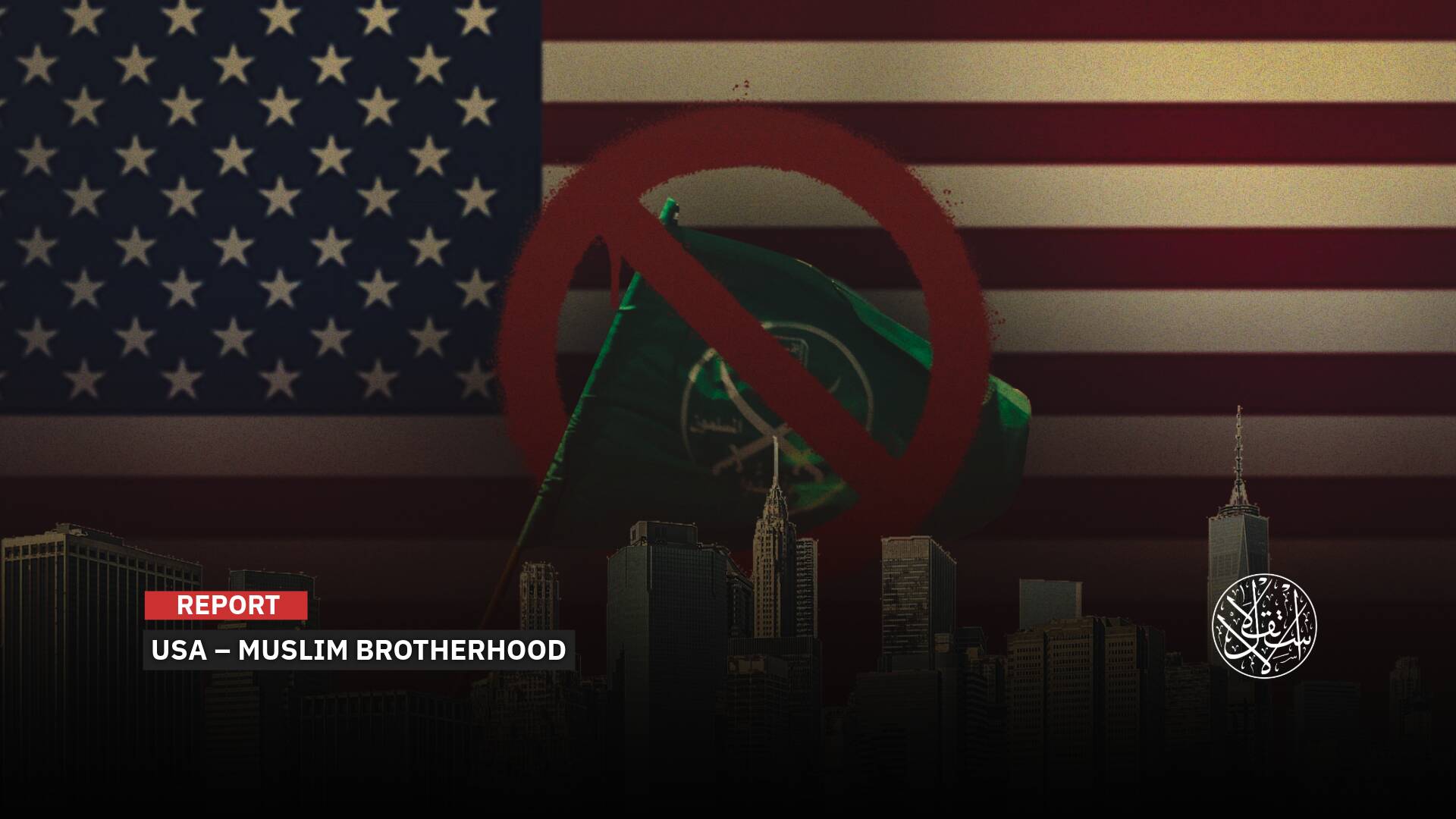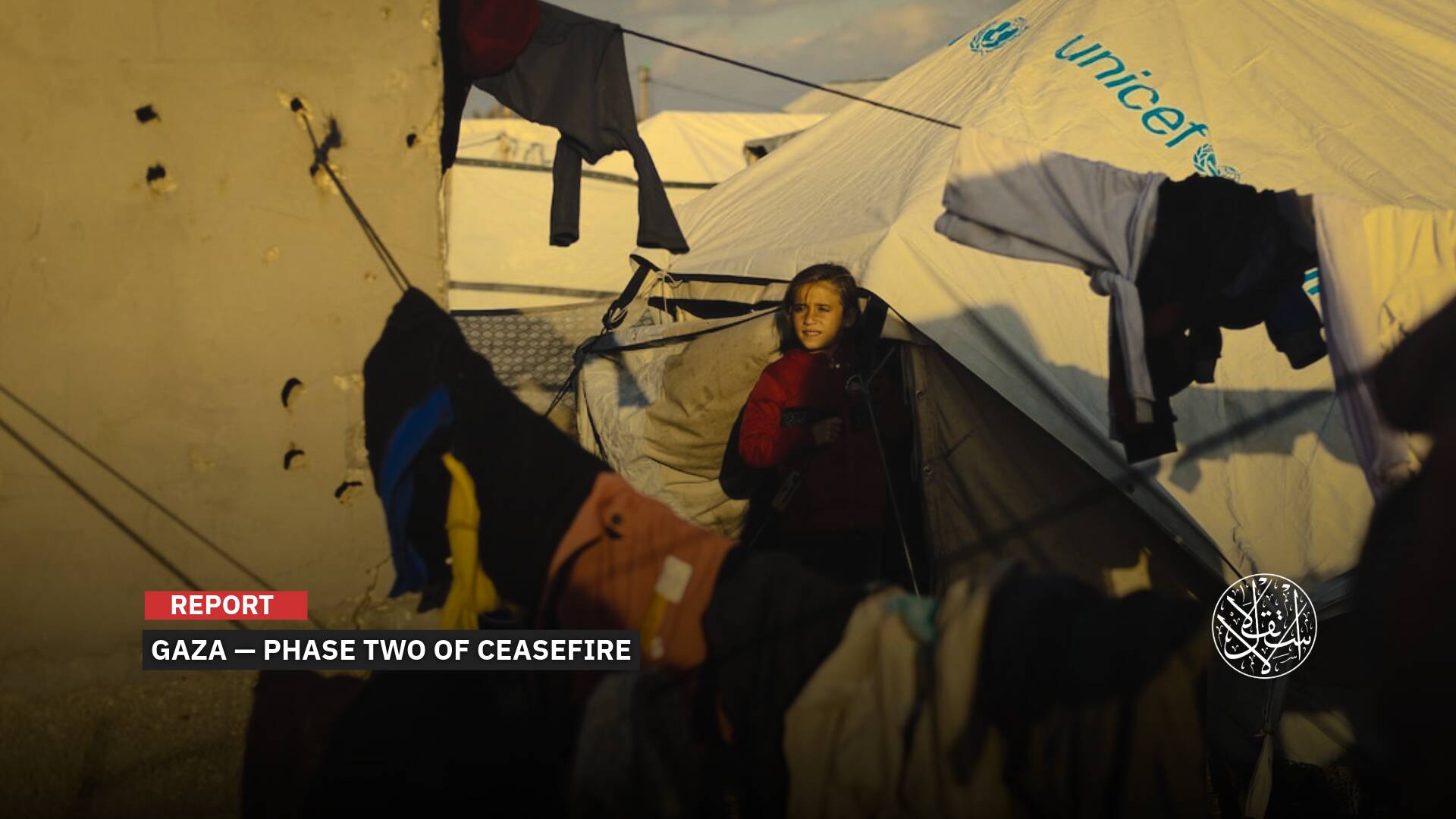The National Guard: An Israeli Militia for Persecuting Arabs and Solidifying Settlers' Dominance

Under the legal pretext of combating Palestinians, the Israeli government led by Benjamin Netanyahu approved the establishment of armed militias called the National Guard with a budget exceeding a quarter of a billion dollars.
The first meaning of this decision, which was approved on April 2, 2023, involved the extremist Minister of National Security, Itamar Ben-Gvir, along with the Inspector General of Police, Kobe Shabtai.
The concept of militias and armed groups has been an enduring aspect of the Israeli Occupation.
This can be traced back to the early days of the conflict when the struggle was primarily between the Zionist movement, which aimed to acquire Palestinian land, and the Arab resistance.
In June 1920, the Jewish organization known as Hashomer was established. Serving as a precursor to the Haganah gangs, Hashomer played a significant role in importing foreign weapons and engaging in acts of warfare and occupation. This marked the beginning of a pattern where young Jewish individuals joined the ranks of these organizations, contributing to their growth and influence.
Over time, “the state of Israel” itself became a prime example of how such criminal organizations can evolve into official formations. The Haganah, initially born out of Hashomer, eventually developed into the core of the Israeli Defense Forces (IDF), which became the “Israel” official military apparatus.
This transformation illustrated how the initial establishment of militias and gang armies, like Hashomer and the subsequent Haganah, laid the foundation for the officialization and institutionalization of armed forces within “the Israeli state.”
This model has been replicated in subsequent years, leading to the formation of various other paramilitary groups, such as the Irgun and Lehi, each with its own agenda and tactics.
Thus, the history of the Israeli Occupation has witnessed the continuity of such criminal organizations, starting with the establishment of Hashomer and their subsequent evolution into official armed forces.
This has shaped the landscape of the conflict, exacerbating tensions and contributing to the perpetuation of the Israeli Occupation.
Despite the passage of many decades since those events, the idea of forming armed militias and gangs still entices Israeli extremists who currently govern the Israeli Occupation under the umbrella of Netanyahu’s government, which was formed on December 29, 2022.
Concerns of the Shin Bet
On April 10, 2023, Intelligence Online published a report stating that despite the approval of the new National Guard formation by the Israeli Cabinet, the government’s plans are already exacerbating tensions within the Shin Bet (Israeli domestic intelligence and security agency).
The report affirmed that the new agency, which Netanyahu proposed to establish to the Minister of National Security, Ben-Gvir, as a substitute for the judicial amendments that were frozen, has already provoked anger within the Shin Bet, headed by Ronen Bar.
The judicial amendments include provisions that limit judicial review of Knesset legislation, give the government control over the appointment of judges, abolish the Supreme Court’s intervention in executive orders, and transform legal advisors in ministries into political appointees.
The Intelligence Online stated that the approval happened at a time when a significant part of the Shin Bet opposes the current far-right alliance in power.
This is especially with Police Chief Shabtai joining the leaders of security and intelligence agencies, who fear the possibility of the National Guard turning into a militia under Ben-Gvir’s control.
The French magazine concluded that this fierce opposition from the security and intelligence agencies is another indicator of a potential division within the security apparatus in “Israel.”

Founding idea
The idea of establishing the National Guard was originally proposed by former Israeli Prime Minister Naftali Bennett. It emerged to address the volatile security situation within the occupied territories in 2022, but it did not receive a favorable response at the time due to security and political considerations.
However, in the aftermath of Israeli protests related to the judicial amendments, the Israeli Occupation announced the formation and funding of the National Guard on April 2, 2023, under the supervision of Ben-Gvir, as per an agreement between him and Netanyahu.
According to the Times of Israel, the government approved a reduction of 1.5% in the budgets of all ministries and government entities in order to establish the National Guard force.
The budget for the new National Guard is reported to be around 1 billion shekels (approximately 275 million dollars).
The initial core of the new armed force will consist of two thousand carefully selected individuals, provided that they are former soldiers or police officers. Their primary mission will be to combat crime and confront demonstrators and cases of rebellion, particularly those emanating from the Palestinian side.
The force will also be tasked with combating extortion crimes, family crimes, serious crimes, and agricultural crimes.
It will operate directly under the supervision of the Ministry of National Security, led by the right-wing extremist Ben-Gvir.
The latter told the Hebrew newspaper that the purpose of this force is to restore calm in the streets and confront terrorists.

Armed Militia
On April 3, 2023, the Legal Center for Arab Minority Rights in Israel (Adalah), issued an urgent letter in the form of a statement to the Israeli Occupation’s Judicial Advisor, Gali Baharav-Miara, as well as Netanyahu and Ben-Gvir, demanding the cancellation of the so-called National Guard.
The center stated that “this entity is nothing but an armed militia that has emerged under a legal cover to fight Palestinians within, and it reinforces the existence of two different law enforcement systems, one for Palestinians and another for Israelis.”
The Israeli opposition leader, Yair Lapid, also objected to the idea of establishing the National Guard and described them as “thugs.”
Ben-Gvir’s policy aimed at consolidating the influence of the National Guard had already begun on April 9, 2023, when he announced the formation of what he called the volunteer force in the city of Lod, located 16 km east of Tel Aviv.
Lod is a city inhabited by Palestinians and settlers, and through the battalion, which serves as a miniature model of the new National Guard, Ben-Gvir sought to solidify the dominance of settlers and suppress Arabs, as reported by the Palestinian newspaper al-Vefagh.
The report stated that Ben-Gvir decided to increase the issuance of personal weapons permits to Israelis from two thousand licenses to ten thousand licenses per month.
It clarified that the National Guard is a malicious Israeli project that relies on auxiliary militias as part of the fascist duo’s plan, Ben-Gvir and Finance Minister Bezalel Smotrich, to arm every settler in the occupied territories.
It added: “This not only worries Palestinians but also Israelis themselves because it is considered reckless and playing with fire.”
With time, it will lead to increased citywide violence and exacerbate confrontations, and the armed elements may clash with the Israeli Occupation forces and police, especially since some of them are extremists.
It is worth mentioning that the Israeli Minister of Internal Security, Gilad Erdan, announced in early February 2023 that one million settlers hold licenses to carry weapons.

Ben-Gvir the Extremist
To understand the extent of the danger posed by the formation of an armed apparatus like the National Guard under the leadership of the extremist minister Ben-Gvir, it is necessary to delve into his ideas and ideology.
Ben-Gvir’s radical ideas are derived from the teachings of Zionist Rabbi Meir Kahane, the founder of the Kach movement.
Kahane won a seat in the Israeli Knesset (parliament) in 1984 before his movement was classified as “terrorist and fascist.”
The Kahane school of thought, known as Kahanism, is a blend of extreme nationalism, political religiosity, and violent practices.
Based on the ideas of the Kach movement and Kahanism, Ben-Gvir believed that “the Arabs in Palestine are enemies who must be forcibly expelled, and coexistence with them is impossible. All Jews around the world must immigrate to Palestine, as it is the holy promised land.”
However, the terrorist movement’s ideas did not stop at mere theorizing; they horrifyingly materialized when one of its members, Baruch Goldstein, committed the massacre at the Ibrahimi Mosque, where 29 worshipers lost their lives on February 25, 1994.
Following this massacre, “Israel” itself and other countries banned the Kach movement, designating it as a terrorist organization.
Ben-Gvir, however, describes the perpetrator of that massacre as a “hero” and became known for displaying his picture on the wall of his home.
Upon his election as a member of the Knesset in March 2021, he declared that “Israel’s enemies must be removed from our land,” referring to Palestinians in general.
Therefore, the new Israeli National Guard becomes a terrifying weapon when it falls under the control of a minister with such extremist ideas.
Sources
- Strong opposition to the draft establishment of the National Guard of Ben-Gvir [Arabic]
- Paving the way for the controversial creation of the National Guard [Arabic]
- Israeli parties oppose the establishment of the “National Guard” [Arabic]
- The Israeli National Guard and its future danger, what is the solution? [Arabic]
- An Israeli institute considered it a strategic mistake: The start of the formation of the Ben Gvir militia, despite the opposition of the security establishment [Arabic]
- What is the new "National Guard" force in Israel? [Arabic]












